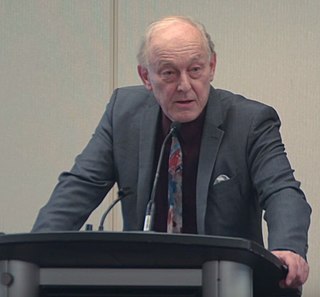A Quote by David W. Orr
In an ecological perspective, in other words, there are few accidents or anomalies, only outcomes based on system structure and dynamics. Climate change and glittering malls, Calcuttan poverty and sybaritic wealth, biotic impoverishment and economic growth, militarism and terrorism, global domination and utter vulnerability are not different things but manifestations of a single system.
Quote Topics
Accidents
Anomalies
Based
Change
Climate
Climate Change
Different
Different Thing
Different Things
Domination
Dynamics
Ecological
Economic
Economic Growth
Few
Global
Growth
In Other Words
Malls
Militarism
Only
Other
Outcomes
Perspective
Poverty
Single
Structure
System
Terrorism
Things
Utter
Vulnerability
Wealth
Words
Related Quotes
Capitalism does not permit an even flow of economic resources. With this system, a small privileged few are rich beyond conscience, and almost all others are doomed to be poor at some level. That's the way the system works. And since we know that the system will not change the rules, we are going to have to change the system.
We need to create jobs for 300,000 youth graduating from high school in the next three years. We need to produce growth so we can have an economic system that can turn our natural wealth into a productive system. We need services, because poverty reduction cannot take place without effective citizenship.
Capitalism, the ogre of those protesting Wall Street, has suffered a public relations crisis in the wake of the global economic collapse. But any remedy to the systemic corruption that led to the collapse should not displace recognition that capitalism creates wealth. Capitalism, and no other economic system, has raised millions from poverty around the world.
I would be remiss, as a scientist who studied this, if I didn't mention the following two things: The first is that, most importantly, we need to do, as a society, in this country and globally, whatever we can to reduce population"....."Our whole economic system is based on growth, and growth of our population, and this economic madness has to end.
The current economic crisis...has numerous causes and sends a powerful message about the need for a profound revision of the model of global economic development. It's an acute symptom that is added to other more grave and already well-known ones, such as the continued imbalance between wealth and poverty, the scandal of hunger, the ecological emergency and the problem of unemployment, which has now become general. In this context a strategic re-launching of agriculture appears decisive.

































